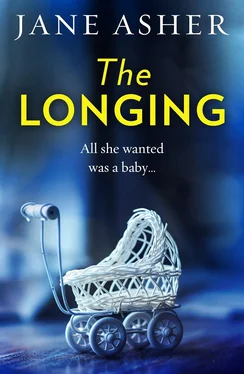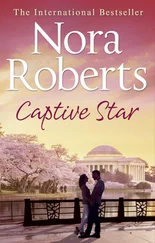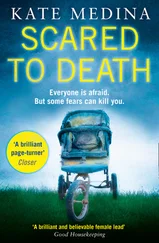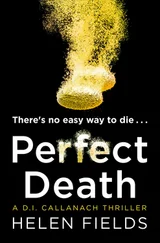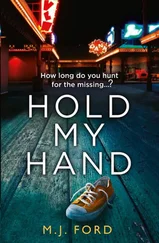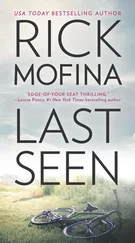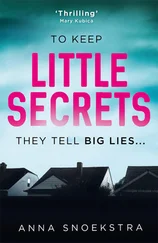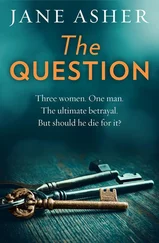‘Come with me, please, constable. I’m Mrs Paulton, the under-manageress. There’s a room at the back where you can be on your own. I’ll bring you both a cup of tea. Poor thing!’
Both Anna, still juddering and hysterical, and PC Anderson followed the comforting shape of Mrs Paulton towards the back of the shop. As Anna passed packets of cornflakes, rice and washing powder she could feel a part of her brain vaguely wondering how they could still exist in this new universe in which she now found herself. Did people still eat? Did they still wear clothes, and get them dirty? It didn’t seem possible. If Harry wasn’t with her then surely the world as she knew it had stopped, turned upside down and shown its murky underbelly.
As Mrs Paulton sat Anna gently down in the back room, the policeman waited outside in the corridor and radioed a quick message to his communications centre, aware that the simple words ‘alleged child abduction’ would ensure immediate action.
‘Right now, love, what’s your name?’ he asked as he came into the room and squatted down beside Anna.
‘Anna Watkins.’
‘And tell me exactly what happened.’
‘I only left him for a second. I just needed to get a few things and he – oh God, I’m sorry, I’m so sorry, I didn’t mean to leave him, I love him so much. Oh Jesus, what am I going to do?’
‘Come on now, love, there’s no need to get so upset. The sooner you can tell me what happened the sooner we can get him back.’
‘They’ll take him away from me won’t they?’
‘No, no love, come on now, no one’s blaming you for anything. Just try and tell me everything you can. What was your little one wearing? What’s his name? Did you see anyone near the pram?’
The baby was starting to cry. As Juliet continued to walk quickly along Streatham High Road he began to twist and squirm in her arms, turning his face round and up towards her, his mouth sucking and puckering, his eyes open and filling with angry, hungry tears.
‘All right, darling,’ she muttered into his pink coil of an ear, ‘it’s all right, Mummy’s here. We’ll soon get you home.’
But even if it had been true, it wasn’t home Harry was after, but food.
‘Please, please stop crying. Mummy’s going to get us home very soon and then we’ll wait for Anthony to come. Won’t he be pleased to see you’re safely back again? Mummy lost you for a bit didn’t she, and Anthony was very angry. Everything’s going to be fine now, sweetheart, and we’ll all be happy again. Please try to stop crying, darling, please try. Sshhh now, quiet now, come on, stop it now, sweetheart. Stop the noise. Mummy’s here.’
Juliet had reached her parked Volvo with an increasingly complaining baby and having placed him in a large shopping basket on the back seat was driving quickly out of Streatham in the opposite direction to the supermarket. His persistent wailing was disturbing her in a way that was more unsettling than anything she had felt for a long time and she couldn’t understand why the stomach-wrenching sensation it produced in her was so familiar. She had been through this before, but in an altered form, in a world the mirror image of this one, darker and more closed in. Where was she when she had felt this, many, many years ago? As she drove on, carefully following her planned route, she remembered: it wasn’t a child’s crying that this terrible sound was dragging up from her past – it was her own. She could hear again the sound of her wailing as she had heard it echoing round her head while they had held her arms and legs in the hospital to stop her running. The more she had wriggled and screamed, the tighter they had gripped her emaciated body, bringing the spoon with its unacceptable contents time and time again to her mouth, pressing it against her lips until she could taste it, or tipping its load into her open, sobbing jaws until she gagged, choked and swallowed in spite of herself.
She turned around to look at the baby on the back seat, but could see only the brown wicker ordinariness of the basket, showing no sign of its extraordinary contents. It was comforting, and she shook her head a little to rid herself of the unwelcome memories that had broken through, unbidden, into the present. She would leave these thoughts till later, until she had reached safety for herself and the baby. Then she would have time to unpack her brain and slowly pick over the contents until she could face them properly and exorcise them; for the time being she would let them hover harmlessly in the pending section of her mind.
Anna had lapsed into a defeated, miserable calm, and was doing her best to give the policeman the information he needed. She was a girl of innate intelligence and a natural toughness which had stood her in good stead through a life that had not been easy. Had she been dealt better cards originally, she would have played them well and avoided the traps set for her by others who appeared to hold all the aces. She had been born into an area of Glasgow that had rid itself of the slums of the fifties and sixties, only to find itself inhabited by an even greater threat. A new, insidious culture was breeding and spreading in the perfect medium of unemployment and poverty, filling the dish that was this small pocket of crowded, inner city life with spores that were ready to break loose and find new areas to infect and ultimately destroy. The figures huddled in corners of Hyatt’s estate no longer discussed the buying and selling of watches or gold jewellery, but of cocaine, crack and heroin. The drug scene had become a way of life: the added threat of HIV had brought a new edge of despair and hopelessness to its victims and even those on the fringes of this miserable, pervasive trade – such as Anna and her family – were touched by its contaminating effects.
She sometimes wondered if her early memories of her father, Ian, were imaginary. She was uncertain whether she had invented the times when the house felt happy; when he didn’t shout at her mother, when she and her younger brother, Peter, were given hugs from him at bedtime and treats at weekends. Years of watching perfect families in her favourite television series – when she had wanted to be like them so much that she had sat in front of the set, screwed her eyes tightly closed and prayed and prayed to be taken into the screen and into their lives – had confused her.
But her memories were right. It was only after years of being unemployed since the closure of the tobacco factory where he had worked for over two decades that the morose, defeatist side to Ian Watkins’ nature was released, producing a bitterness that resulted in a lack of kindness and affection to his wife and two children that amounted to cruelty. The bitterness had infected his children: Anna made no real friends at school, and alienated her teachers with the harsh cynicism she expressed with sharp intelligence.
She had always known she would get out of the family home at the earliest opportunity, and the continued daily diet of television for her and Peter had helped to instil in her the illusion that if she could only get herself ‘down South’ she would be able to make something of her life, and even return in glory after a few years, bringing back fame and fortune as in the fairy tales she had read to herself as a young girl.
At the age of fourteen she began to plan her escape. She took on an early morning paper round and started to save the small amount of money that it brought in, and in spite of her father’s insistence that it was to be given to her mother to help with the bills, she managed to lie sufficiently well about exactly how much she was making to be able to put tiny amounts aside in a tin on top of the old-fashioned wardrobe in the bedroom she shared with her brother.
Читать дальше
